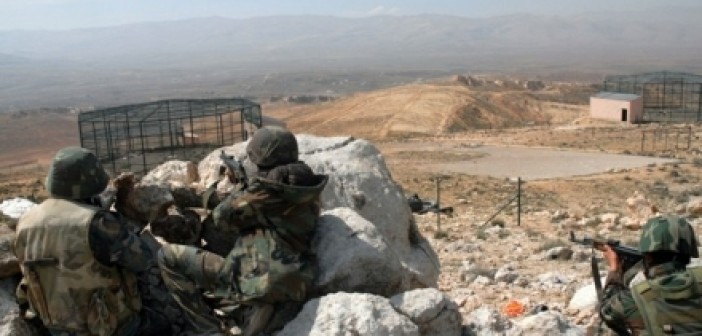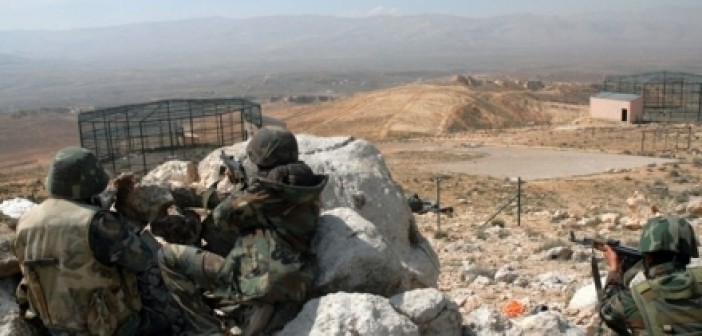Syria fighting threatens deal to fix damaged Damascus water source

Syrian army soldiers.

The Syrian Observatory for Human Rights said the army and the allied Lebanese militia Hezbollah had made some gains against rebels in the Wadi Barada area. Heavy fighting reached the outskirts of the Ain al-Fija town, where the water springs are located, the British-based war monitor reported.
Artillery shelling by government forces killed seven people and wounded several others in the nearby Deir Qanoun village, it said.
Wadi Barada, a mountainous valley northwest of Damascus, has become a major battlefront in the Syrian war, and the damage to the pumping station has caused severe water shortages in the capital since the beginning of the year.
The governor of the Damascus Countryside province said on Friday that engineers had entered Ain al-Fija to repair the pumping station, as part of a wider agreement that included the departure of some rebels from Wadi Barada and a settlement with others who would remain there.
But the plan was derailed on Saturday evening, after armed men killed the head of a negotiation team who was overseeing the agreement and repairs, the Observatory said.
A military media unit run by Hezbollah said the army captured some positions overlooking Ain al-Fija on Saturday, after taking two nearby villages in recent days and edging closer towards the water facility.
The water spring was knocked out of service in late December. The United Nations has said it was damaged because “infrastructure was deliberately targeted”, without saying who was responsible, leaving four million people in Damascus without safe drinking water supplies.
The U.N. warned the shortages could lead to waterborne disease outbreaks.
Rebels and activists have said government bombardment damaged the spring. The government said insurgent groups polluted it with diesel, forcing the state to cut supplies.
Wadi Barada has become the main focus of fighting between forces loyal to President Bashar al-Assad, backed by Russia and Iran, and rebel groups seeking to oust him, after the government took full control of Aleppo city last month.
Fighting in Wadi Barada has tarnished a shaky nationwide ceasefire that began on Dec 30., brokered by Russia and Turkey, which is one of the main supporters of many rebel groups.
The United Nations estimates 45,000 people live in the Wadi Barada area, and thinks at least 7,000 people have been displaced form the area in recent fighting.
